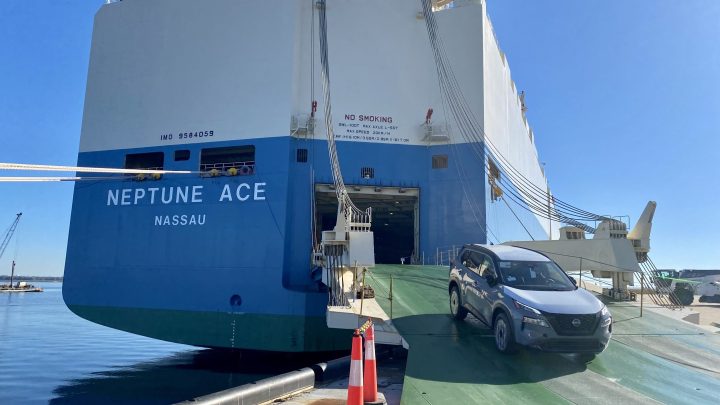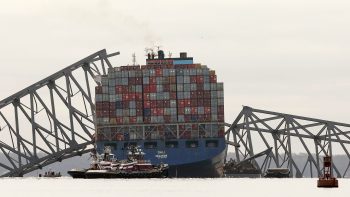
“Ro-ro” your boat to Georgia: why the state sees a lucrative future in automotive shipping
“Ro-ro” your boat to Georgia: why the state sees a lucrative future in automotive shipping

With a population of roughly 15,000 people and about a five-hour drive from the rapidly growing Atlanta metro area, Brunswick, Georgia, might seem like an unlikely place for automotive shipping to flourish.
But flourish it has: behind only the Port of Baltimore, the Port of Brunswick ranks as the nation’s second-busiest port for wheeled cargo — known within the industry as “roll-on/roll-off” cargo, or simply “ro-ro.”
Having processed more than 700,000 units (primarily automobiles, but also some heavy machinery) in 2023 and grown its cargo volumes by 18% in the last fiscal year, the Port of Brunswick may well be on track to surpassing the Port of Baltimore — which Georgia Ports Authority president and CEO Griff Lynch has said will happen within five years.
Capable of handling up to three ro-ro ships at once, the Port of Brunswick is planning to add a fourth berth by 2026.
So, what explains the port’s success? The No. 1 reason, according to Lynch, is the Southeast region’s rapid population growth. According to Pew, the Southern U.S. is growing faster than any other part of the country, with nearby Florida ranking as the fastest-growing state.
“And then secondly, we have an increased manufacturing base, companies like Mercedes Benz, BMW, Volvo,” he added, pointing also to a massive $7.6 billion Hyundai electric vehicle and battery plant under construction in nearby Bryan County — the largest economic development project in Georgia’s history.
Another factor driving growth at the Port of Brunswick has more to do with what isn’t there, as opposed to what is: Unlike the Port of Baltimore, which is locked in by the rest of the bustling city, the Port of Brunswick lies in a spacious, unincorporated part of rural Glynn County.
That allows for quick access to Interstate 95, the main north-south corridor along the East Coast.
“We also have the rail connectivity there,” said Susan Gardner, Georgia Ports Authority vice president of operations. “So, I feel like the connection with the railroads as well as the connection to the interstate makes it a very fluid port to import and export out of for autos.”
Yet another advantage has to do with what’s going on about an hour’s drive north. There, the Port of Savannah stands among the nation’s busiest container shipping ports, behind only the Port of New York and New Jersey for East Coast container traffic.
A recent rise in manufacturing to Southeast Asia has favored shipping to the U.S. East Coast, as opposed to Chinese cargo, which often travels to the West Coast.
“That has a knock-on effect for the ro-ro traffic,” said Peter Hall, a professor at Simon Fraser University, who researches ports.
Because Georgia’s container shipping traffic goes through Savannah, Brunswick can focus on ro-ro.
But it’s not all smooth sailing, in part due to Glynn County’s aging demographics, according to International Auto Processing President Don Asdell, whose company puts the finishing touches on many imports at the Port of Brunswick.
“Our population continues to grow every year, but the growth isn’t really with the workforce,” Asdell said. “This area has a lot of people moving here. They’re retirees; they’re not part of the active workforce. So our challenge is trying to get people coming out of the local school system to want to stay here, as opposed to moving away to larger cities like Atlanta.”
Because labor demand is exceeding labor supply in Brunswick, it’s no wonder Asdell said that his company hasn’t laid off any workers in the eight years he’s been there.
There’s a lot happening in the world. Through it all, Marketplace is here for you.
You rely on Marketplace to break down the world’s events and tell you how it affects you in a fact-based, approachable way. We rely on your financial support to keep making that possible.
Your donation today powers the independent journalism that you rely on. For just $5/month, you can help sustain Marketplace so we can keep reporting on the things that matter to you.

















